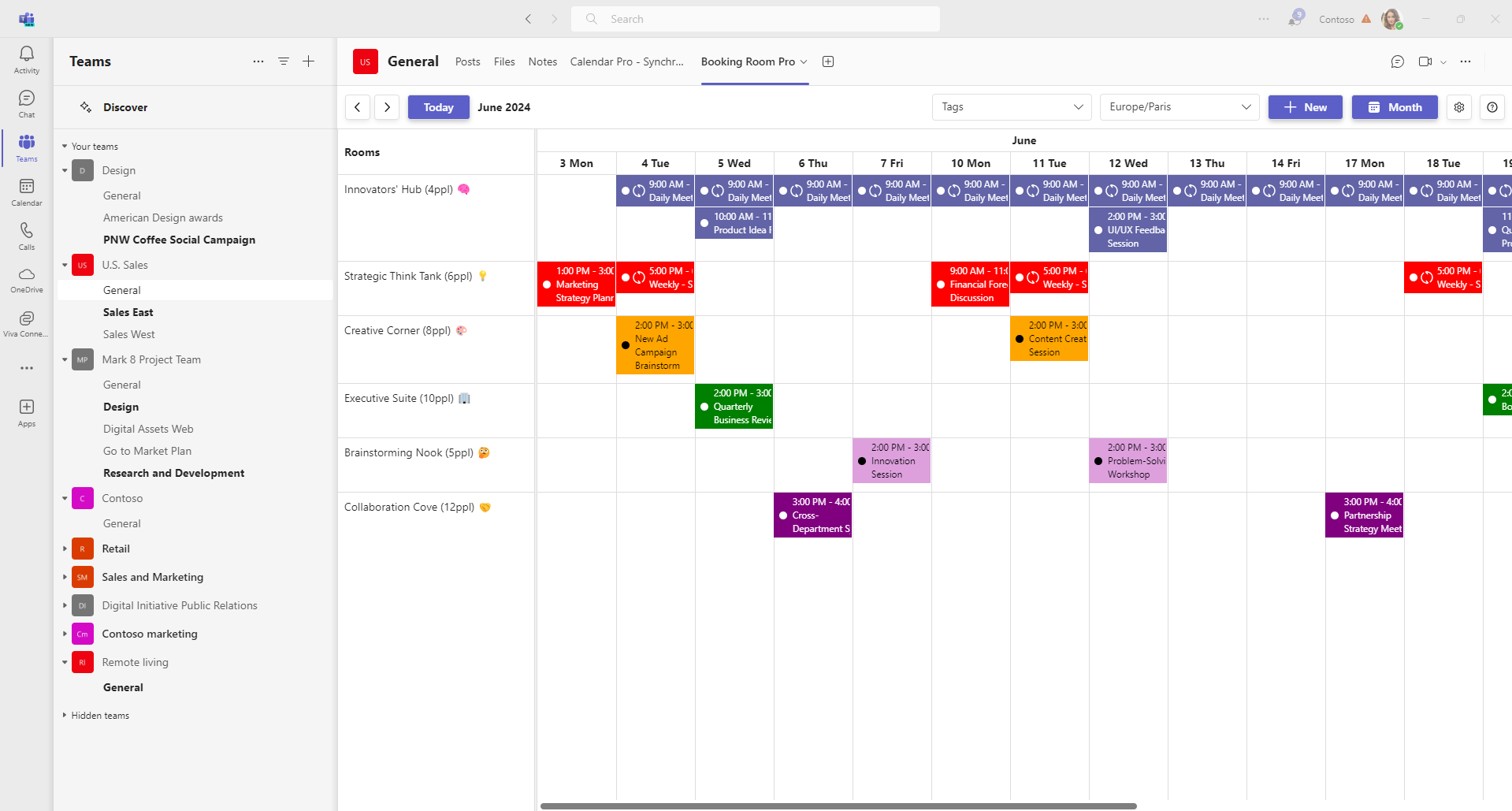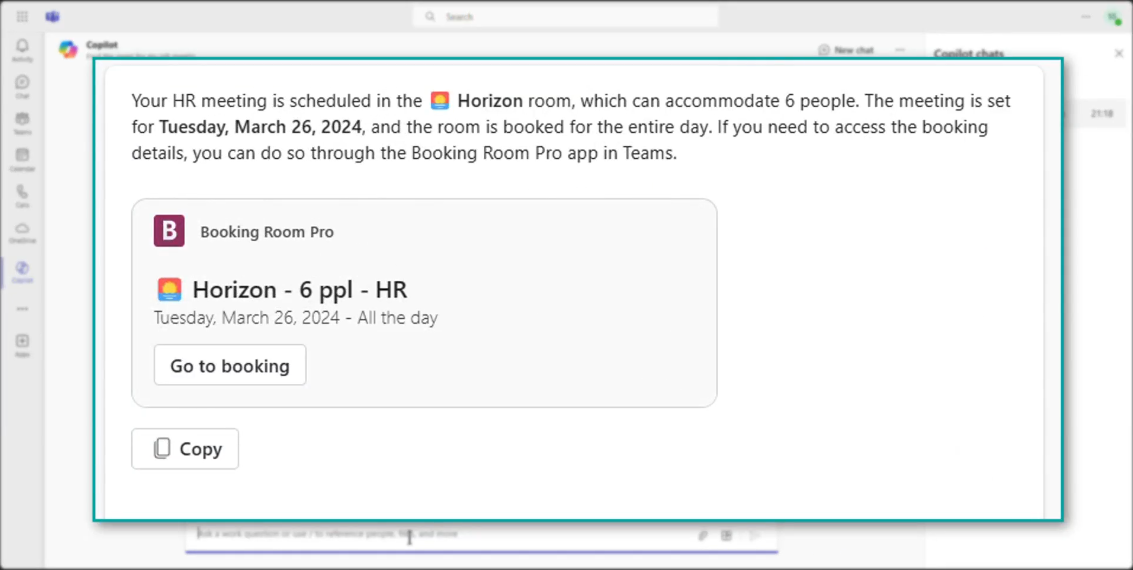This is part five in a series of blogs where I'm sharing examples of how partners are innovating with Microsoft Copilot.
Microsoft Copilot has been generally available to enterprise customers for less than a year, and many independent software vendors (ISVs) are already discovering ways to use it to transform their business and enhance their offerings to customers. It’s thrilling to see such rapid progress from our partners.
At Microsoft, we share in the sense of excitement about advancing the potential of AI. But, as with any new tool, it’s crucial to plot the best path forward rather than simply adopting it to keep pace with industry trends. I recently spoke with a leader of one ISV in France who put it succinctly: Don’t build AI for the sake of AI. You must do it strategically and with intention.
It’s helpful advice, and it comes from Nicolas Humann, CEO, and co-founder of Witivio, a maker of apps and bots that improve employee experiences across HR, IT, internal communications, and more. Witivio has often served as an advisor to other French ISVs looking to integrate with Microsoft Teams. The company recently released their first Copilot extension, and they provided great insight for Microsoft partners looking to extend Copilot.
In this post, I’ll share Witivio’s experience, their guidance about what other developers can focus on during development, and their thoughts on getting the most out of Copilot.
Witivio: An innovator in Microsoft Teams and Microsoft Copilot
Witivio builds solutions on the Microsoft 365 tech stack so that the company’s apps can enable people to easily complete daily tasks, such as onboarding, scheduling, and managing facilities, while remaining in the familiar Microsoft environment.
“We share a deep belief with Microsoft that users are most productive and effective when they can stay in the flow of work within the same solution,” says Nicolas Humann. “From day one, we decided to integrate with Teams because it provides that seamless experience while also offering a market of hundreds of millions of active users.”
When we announced that Copilot would be available in Teams, Witivio was quick to begin planning their integration strategy. The company started with an extension for its Booking Room Pro app, which simplifies the process of reserving meeting rooms and completing space management activities for companies, schools, hospitals, and other organizations.

Witivio wanted to ensure Booking Room Pro would be easily accessible within the Copilot experience, where Teams users are increasingly spending their day to maximize productivity. Being among the first ISVs to develop a Copilot extension also helps increase visibility in the marketplace, which Witivio hopes will attract new customers looking to take advantage of Copilot.
Tips for developing Copilot extensions
Partners can develop Copilot extensions in several ways, depending on the use case. You can use the rapid development environment and user-friendly interface of Microsoft Copilot Studio or Microsoft Visual Studio for more advanced experiences. Extensions include connectors that enable Copilot to reason over your application’s data, plugins that add skills and actions to Microsoft 365, and your own copilot that can be customized to accept handoffs from Copilot regarding specific topics or actions.
For Booking Room Pro, Witivio chose to build a plugin that uses Teams message extensions, which enables developers to leverage their existing Teams app to add custom search and action capabilities to Copilot. Because message extensions are already a component of Teams apps, it only took Witivio’s developers a few days to build their first extension. Then they tested it for about a week before moving into the validation process.
The Booking Room Pro extension is now live in the Microsoft commercial marketplace. For partners looking to follow Witivio’s lead, here are the key takeaways:
1. Think through your use cases.
Witivio’s overarching advice is to build AI experiences strategically and focus on the specific use case(s) that will most benefit your customers in their daily work. For instance, Witivio identified a need for people to more easily search for available conference rooms using natural language. Once they established their primary use case, it was an obvious decision to build a plugin that leveraged the existing Booking Room Pro message extension to enable Copilot to search for real-time information on meetings, invites, and available spaces.

Witivio also emphasizes the importance of ensuring that Copilot knows when to invoke your extension. To do that, create your plugin manifest using concise and accurate descriptions of the extension, its skills, and the parameters. Read our guidance about extension search optimization for more information.
2. Design for dialogue using engaging conversational interfaces.
Copilot is enabling a shift from traditional, window-based interfaces to dialogue-driven, natural language interactions. This approach provides users with a seamless and intuitive way to engage with your extension, akin to having a conversation. Developers can enhance user engagement by creating clean, organized, aesthetically pleasing Adaptive Cards, which display information and responses for users within Copilot chat.
It’s also important to add buttons or other inputs to Adaptive Cards to prompt the user for the next set of actions to complete the task.
3. Conduct follow-ups with customers to gather feedback.
It’s vital to have an open discussion with customers to ensure they’re receiving the value they expect and to discover additional opportunities. Witivio plans to gather feedback from the customers adopting their extension, which could reveal new use cases to build around. It could also inform Witivio’s decisions about additional Copilot features to include in future releases or whether to monetize the extensions.
The next wave of innovation
Witivio plans to build additional Copilot extensions for the other applications in the company’s portfolio, starting with Calendar Pro, which allows groups to create shared calendars in Teams. Deploying the extension for Booking Room Pro will provide valuable information for tailoring Calendar Pro and subsequent extensions, as well as further streamlining the development process.
Now that Witivio has built its first extension, the company is also better prepared for developing more advanced versions. For example, message extensions and other plugins now allow Copilot extensions to perform tasks in addition to conducting searches. With that new feature, Booking Room Pro users could ask the extension for the availability of a space big enough for a large team meeting and then instruct it to actually reserve the room. Witivio intends to remain at the forefront by quickly integrating these new capabilities into its extensions and apps.
“We want to be the first,” Nicolas Humann says. “It’s clearly in our DNA to innovate, to find new ways to integrate our ideas and push the boundaries of AI to benefit our customers.”
If the past year provides any indication, there will be no shortage of opportunities for partners like Witivio to continue advancing what’s possible with AI. We’re excited to work alongside you to bring that innovation to life.
Learn more about Witivio and Copilot extensions
For more information about Copilot and Witivio, follow the links below.